
Your son needs a safe place to heal and grow. They will find that at Oxbow Academy. Residential living is designed for teens with sex-specific issues.
Oxbow Academy has decades of experience working with teens with sex-specific issues. That experience informed everything from the design of our buildings to safety procedures.
The residential buildings were designed with safety in mind. The dorms are open areas with no doors. They include physical safety features, such as:
- Motion sensors
- Security cameras in sleeping areas
- Private shower and toilet areas
- Doors that will sound an alarm if used without authorization
Aside from the physical design, Oxbow Academy has other safety features. These features include daily living policies and safety protocols that protect all students.
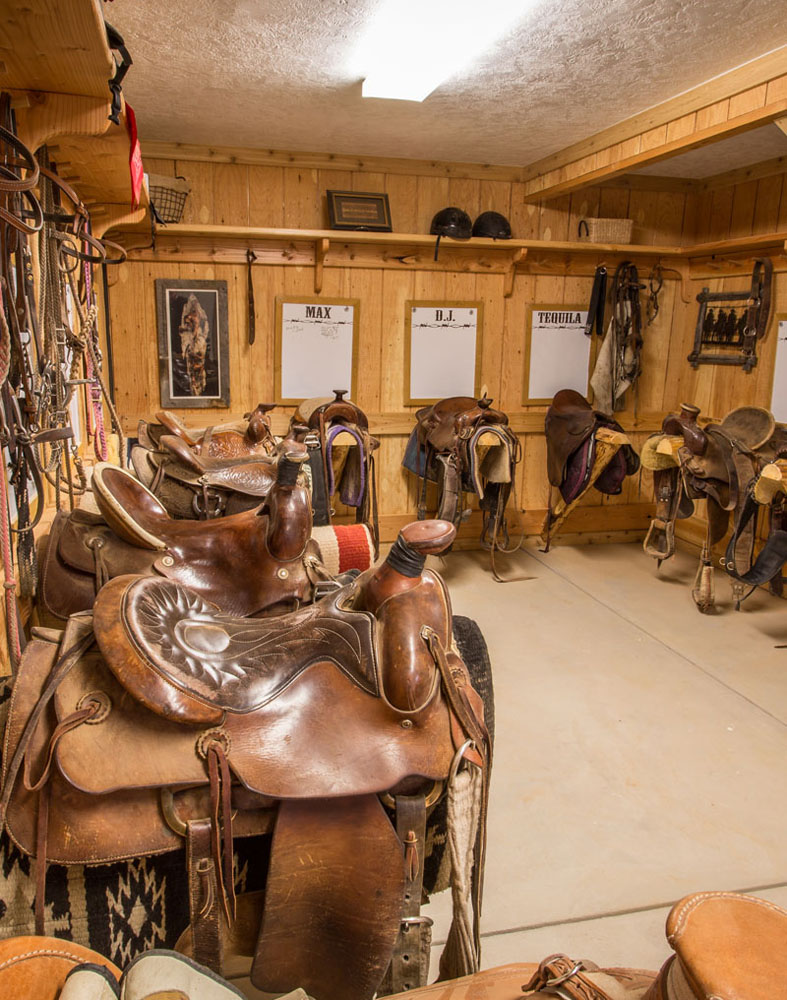
We're Here To Help. Recovery Is Possible.
Your teen can recover from sexual behavioral problems. Contact one of our trained representatives for a free, private consultation
Staff Members
Well-trained, experienced staff members are also a major asset. Staff members provide line of sight or line of sound supervision at all times.
They prepare for events that staff members at less specialized facilities may not. This involves attention to small and large details. Staff receive ongoing training to continue to learn. They keep a safe environment for students at Oxbow Academy.
While at Oxbow Academy your son will receive continuous supervision. The supervision will result in keeping your son safe. It will also result in improved treatment.
Staff members observe and assess teens. The method of assessment is called the Residential Emotional Social Behavioral Assessment or RESBA. The RESBA evaluates daily interpersonal relationship management. As a result, staff members are better able to support and encourage change.
A large part of encouraging change is in fostering relationships between staff members and teens. Also, staff members continually communicate their observations with the treatment team. They help integrate interventions assigned by the treatment team as well.
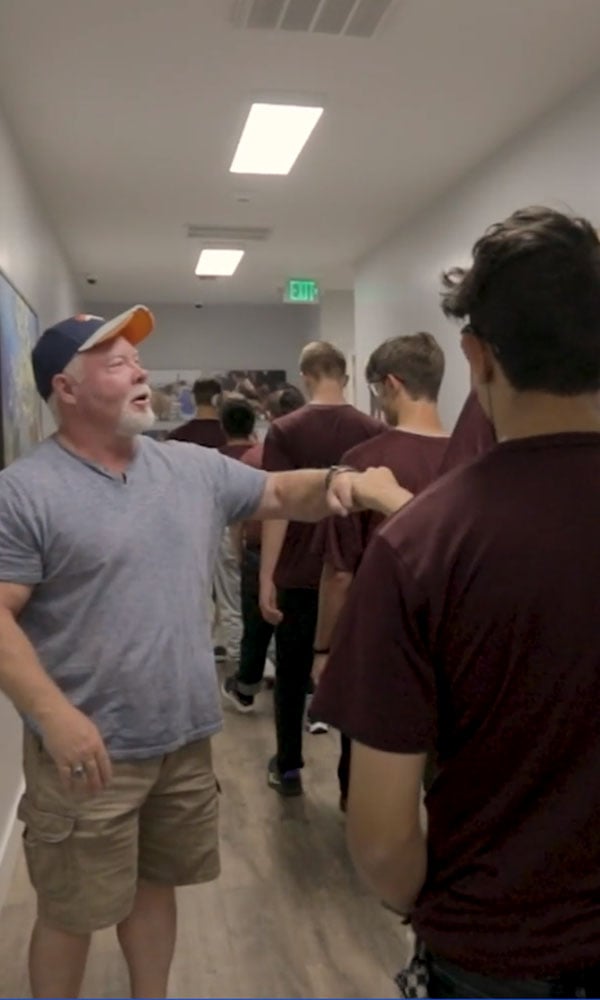
Because staff members are an active part of a unified treatment team. This means that your son will experience a stable environment with consistent expectations. The environment created by this unity creates a healing environment for your son.
Besides these measures, Oxbow Academy’s residential program promotes healthy growth and development. The program offers:
- Twin-sized bunk bed and locker for each student
- Certified food safety manager who prepares three meals daily
- Fruit or healthy snacks are available anytime
- Salad bar included at lunch and dinner
- Outdoor sport court
- Garden for experiential learning and fresh vegetables
- Open grass area
For many teens like yours, the culture at Oxbow Academy becomes part of the safety net. Students understand each other and their issues.They motivate each other to change.
Students come to realize their old coping tools and behaviors do not work. Students help each other develop new tools for new lives. They begin to discover new strengths and interests.
At Oxbow Academy, your son will be encouraged to develop purpose and direction in life. He will find excellence in work and play and an opportunity to create a healthy, productive life.
Mission Statement
Your son will develop a personal Mission Statement. The Mission Statement is not something that someone else will define for him.
The Mission Statement is his own standard of accountability. It is a personal affirmation of his individual worth. It is his first step in redefining himself.
His Mission Statement requires him to take personal responsibility for his daily decisions.
Like all Oxbow students, your son will memorize his Mission Statement. He will stand and recite his mission statement during the focus group at least twice daily. Your son may act in ways that conflict with his Mission Statement. If he does, then the focus group will hold him accountable.
Students at Oxbow Academy are also encouraged to say their Mission Statement in the morning and at night. Before getting out of bed in the morning or falling asleep at night are the best times. These quiet times give him an opportunity for personal reflection.

Vision Boards
Besides his Mission Statements, your son will create a Vision Board. A Vision Board will help your son imagine the positive future he can create by making more positive choices. The Vision Board will help him understand the impact of his Mission Statement. It is the visual link between change today and success tomorrow. Your son’s Vision Board will hang next to his bed where he can see and reflect on it often.
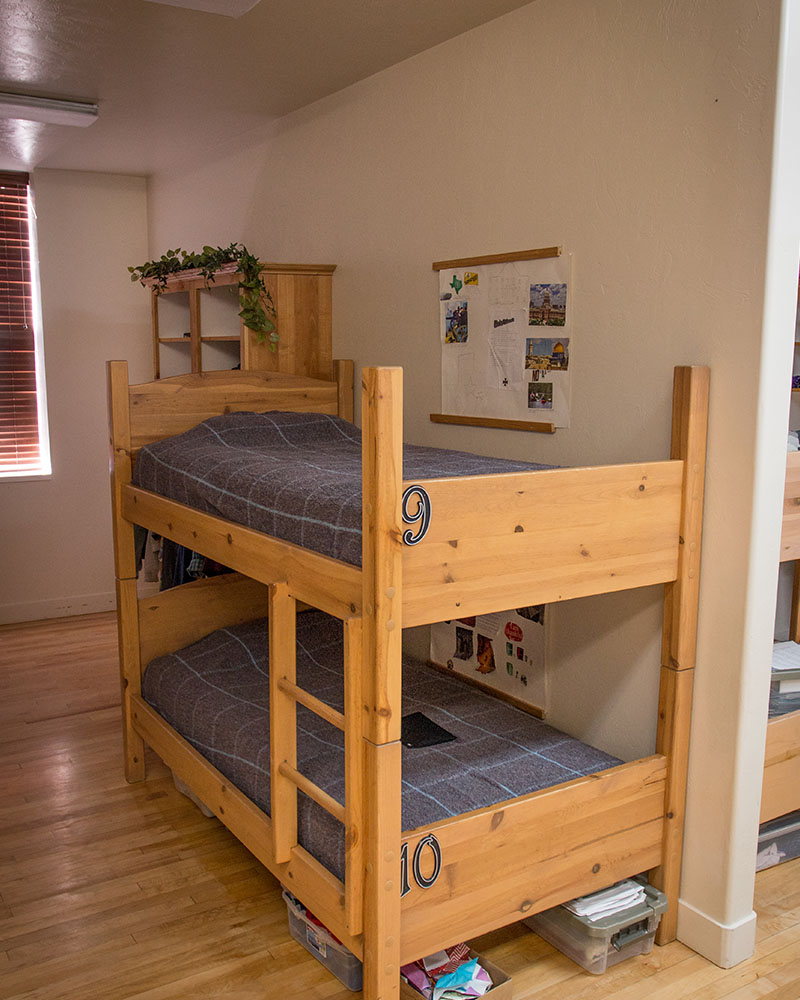
Accountability
Your son is a developing adolescent. The Oxbow Academy program is designed with developing youth in mind.
Accepting personal responsibility and working to resolve relationship issues from past choices forms the foundations of healing. Your son will also improve his abilities to improve through daily accountability for his choices.
There are three keys to accountability and successful treatment at Oxbow Academy. They are honesty, commitment, and risk.
Honesty means no lies, storytelling, or half-truths. The clinical polygraph your son will take is crucial. The process will help him be honest with you and with himself. The more honest your son is at the beginning of their therapy, the faster he will progress through the treatment process.
Before your son can make progress, he has to commit to change. He must be willing to engage in the therapeutic process. This means being honest with his therapist. It also means interacting in healthy ways with family, staff, and peers.

Finally, your son is asked to talk about his truth. He will be expected to share his sexual and nonsexual history with his family and therapist. He will also share his thoughts and feelings with the peers in his treatment group.
Your son’s willingness to be open and honest will help him to identify high-risk factors that contribute to inappropriate behaviors. He will be encouraged to not keep secrets from therapists or his family members. His willingness to risk opens the door to healing.
Healing may take the form of resolving relationship issues. Healing may also include learning not to be defined by past trauma events.
Governing Principles
As a therapeutic community, Oxbow uses Five Governing Principles. These principles establish and encourage desirable behavior.
These principles are important. They prepare your son to succeed at the academy and in the rest of the world.
Your son will learn about behavioral expectations. He will practice living these principles while at Oxbow Academy. So, he will be able to thrive at home and in the larger world.
When your son comes to Oxbow Academy, he will learn about our five governing principles. He will also practice living by them. These principles are:
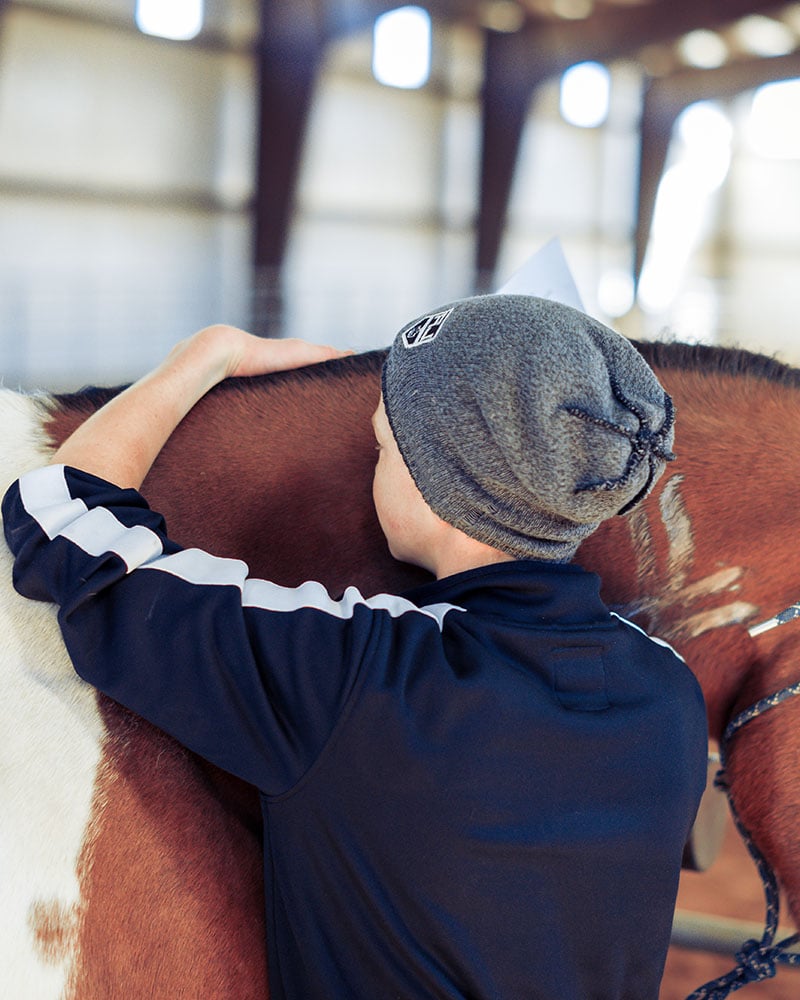
Rule of Law: No one is above or beneath the law. There are positive consequences for obeying the law, negative consequences for disobedience. This is a natural result of individual choices. Rules promote safety and ensure equality.
Relative Free Society Principle: For all law-abiding people, freedom is relative. The freedoms we enjoy are relative to individual choices.
Collective Principle: Individual choices can and do affect everyone else in society. Students hold each other accountable for their behaviors. They understand they are all affected by one another’s actions. Group members invest themselves in helping each other succeed as a group and as individuals.
Pressure Principle: Pressure is a universal constant. It may fluctuate depending on our circumstances, but it is always present. Pressures may be external or internal. As pressure increases students must increase their ability to handle the fluctuations.
Judgment Principle: Students must resolve their own problems. The treatment team will approve students' decisions about managing behaviors in the group. Students learn good judgment by helping resolve group issues.
In a principle-centered community, apathy is an important part of the group dynamics. Students learn working for the common good is beneficial. They learn how to look for solutions. This teaches students how to improve their problem-solving, communication, and leadership skills.
Pride in Self
Personal hygiene is not only a matter of comfort and cleanliness, it’s also a therapeutic tool. Your son must shower at least once a day. Oxbow Academy provides any necessary hygiene supplies.
Your son will also maintain his hair in a neat and appropriate style. Monthly haircuts are arranged. Facial hair is not allowed. Body piercings of any kind are also not permitted.
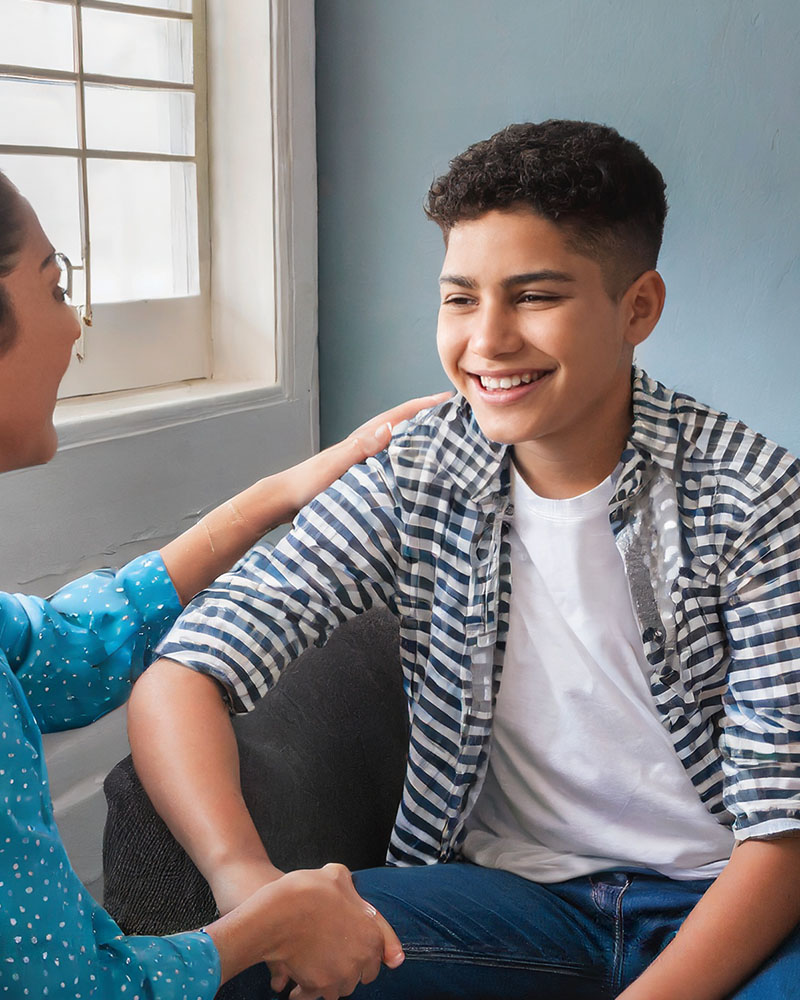
Community Service
An important aspect of your son's recovery is that he will come to understand he is part of a larger community.
Community service activities will help your son develop a sense of belonging. He will learn about healthy pride and accountability.
Our activities are as diverse as the needs of our community. They may include shoveling snowy walks. They may include helping to haul hay. Students also can conduct a clothing drive and make quilts. They donate these items to families in need.
These projects will help your son see beyond himself and his problems. They will help him build leadership skills and self-esteem.
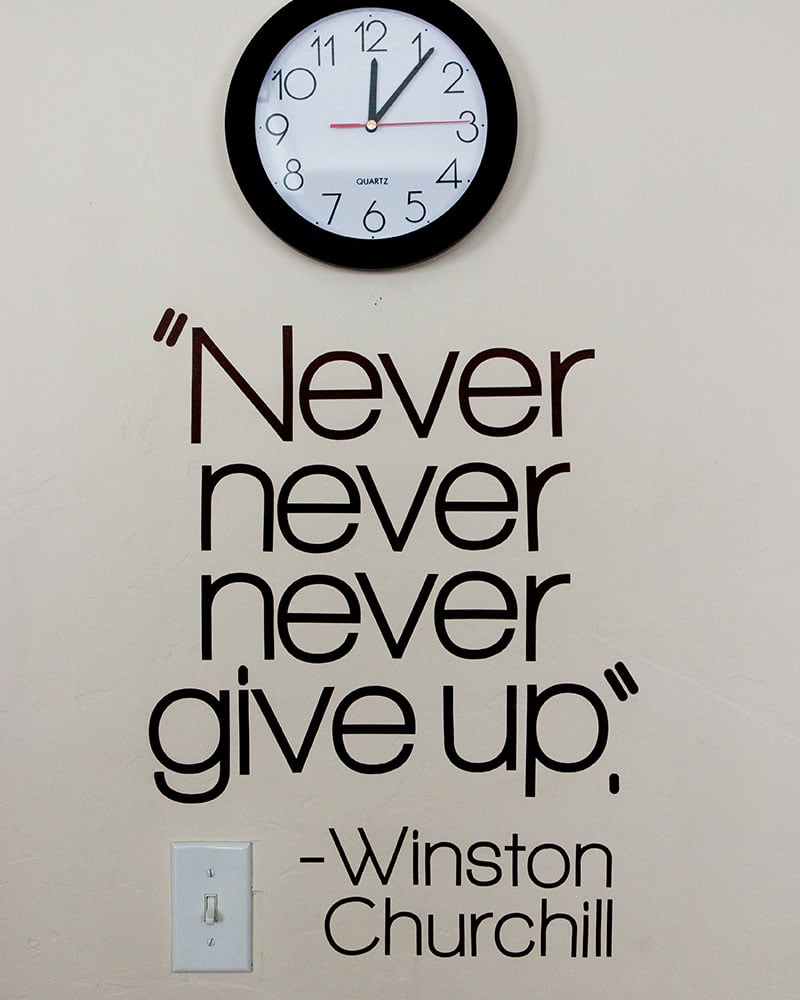
Peer Mentors
Your son will have the opportunity to develop leadership skills. When he completes clinical Phase Two, he can become a peer mentor.
To be selected as a peer mentor, your son will need to show consistent improvement. He must improve in both daily living behaviors and academic achievements.
Your son will be able to help other students. He will have the pride of having earned a position of responsibility.
Peer mentors help new students learn and understand the Oxbow program. They play an important role in providing positive role models.

Recreation
Your son will have the opportunity to enjoy a variety of sports and leisure activities at Oxbow Academy. Students participate in a sports league offering football, and basketball. Your son will have plenty of opportunities to play basketball on the sports court. He will also have access to a gym for weight training. Besides team sports, your son may also enjoy skiing, sledding, camping, hiking, rock climbing, and fishing.

You Have Questions, We Have Answers. Your Call is Confidential.
Oxbow Academy is fully operational during the COVID-19 crisis. Contact us if you need help with treatment for sexual addiction, sexual abuse, pornography abuse and other compulsive behavior issues.
Many parents find it difficult to tell healthy curiosity about sex from a potentially dangerous situation. There are clinical evaluations that can help make that determination easier. One of these evaluations is the Sexual Addiction Screening Test (SAST).
On the SAST, you will answer a series of simple yes or no questions about their teen. The answers are completely confidential. No information connects you to your assessment. After you complete the SAST, you will be taken to a new page that shows a score representing the level of risk.
After you get your score, you will have the chance to request a call from someone who can help answer your questions. You will only be contacted if you make a request. Whether you request a call or not, your information will remain confidential, and you will be under no obligation.

